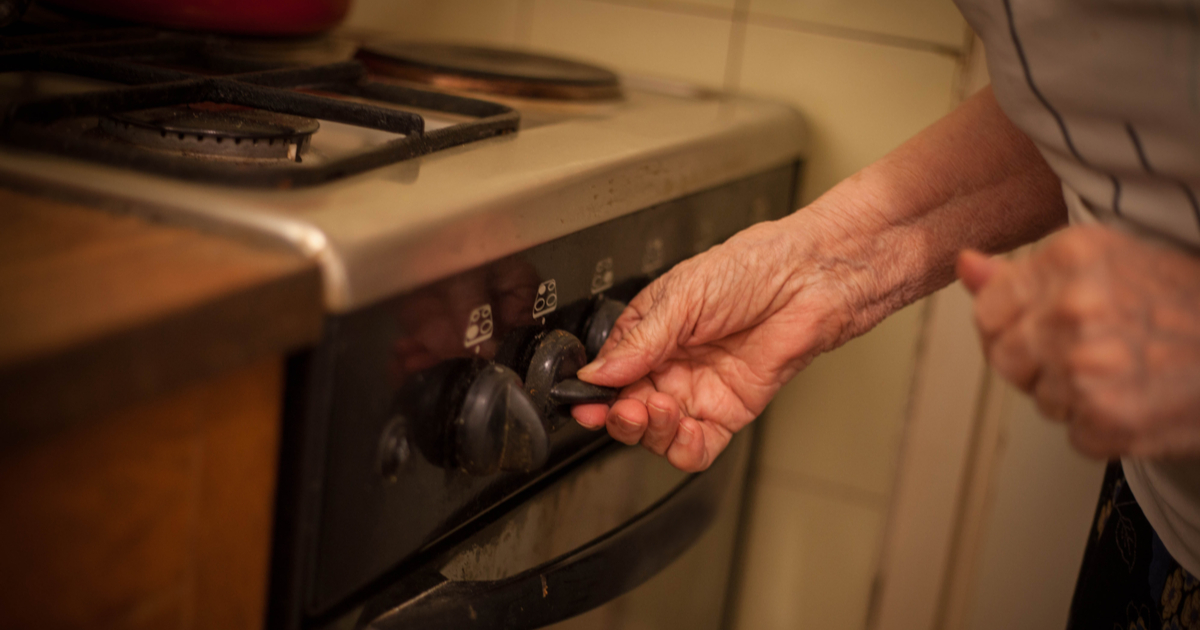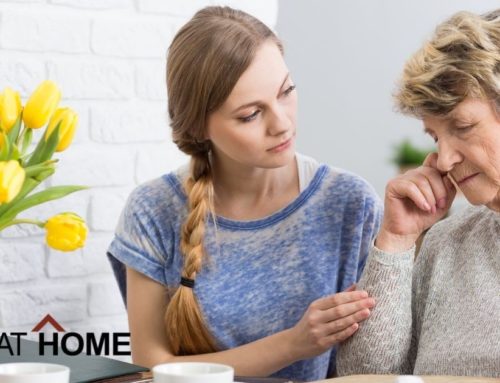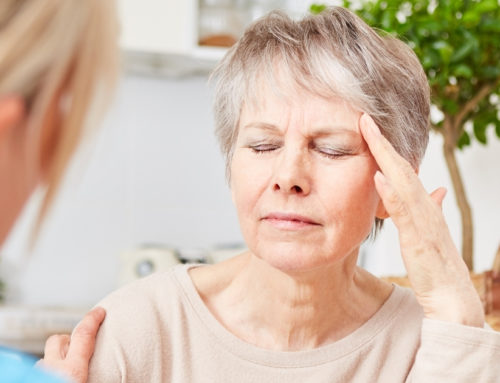As a caregiver for someone with dementia, you have many things to be thinking about. Planning and serving meals, selecting clothing, organizing and supervising appointments and trips outside of the home…these are just a few of the myriad of details you need to attend to.
Practical Tips for Dementia Caregivers
One of the most important things to be considered each day is the safety of the individual in your care. There are a number of ways they can become sick or injured if close attention isn’t paid to details concerning home safety. Here are seven practical tips for caregivers to help you keep the senior in your life safe at home.
1. Secure Household Items
It’s easy for the person in your care to access items that can cause physical danger mistakenly. These include:
- Electric appliances (blenders, toasters, irons, coffee makers, etc.)
- Kitchen knives
- Cleaning supplies
- Medicine
Where possible, install childproof locks on cabinets and drawers to keep these items secure and inaccessible.
2. Prevent Falls
Have furniture designed for safety, such as a recliner that helps them get up and standing, bed rails, or a hospital bed. Remove ottomans they can trip over and avoid having tables with sharp edges in case of a fall.
3. Use Technology As an Aid
Technology can be an excellent tool for safety. There have been many products developed that can help. They include:
- Furniture (seat cushions, bed mats) wired to alert you when someone gets up or leaves a room.
- Motion sensors with alarms inside and outside, especially the bedroom and kitchen.
- Motion-activated video monitors.
Keep an eye out for new developments and talk with other caregivers about tools they’re using for safety.
4. Keep an Eye On the Pantry and Kitchen
These two areas are perhaps the most prone for mishaps and errors in judgment for the person in your care. You should:
- Check them regularly for spoiled food that someone could eat without checking for expired and moldy food.
- Keep certain foods out of sight. A bag of un-popped popcorn can look like a tasty snack, or a jar of mustard may look like something that can be eaten with a spoon.
- Keep pet food out of the way. A bowl of uneaten pet food can appear to be a meal to your loved one.
- Watch for appliances that can be hazards such as garbage disposals, ovens, and stovetops.
5. Pick a “Safety Zone”
Designate an area to store:
- Bleach
- Mothballs
- Cleaning products
- Insecticide
- Paint
- Sharp knives, scissors, box cutters, razor blades
- Bottles of alcohol
- Tobacco products
- Lighters
- Hand and power tools
Keep this area padlocked or install childproof doorknobs.
6. Secure The Outside Of the Home
Take a walk around the outside of the home and do the following:
- Make sure gates on fences lock.
- Remove all hazards, like sprinklers, garden tools, and hoses.
- Clear away fallen leaves and branches, ice, and snow.
- Keep the grill locked and covered.
- Keep the swimming pool fenced and locked.
- Install handrails and stairway rails to avoids slips and falls.
- Install motion-activated outside lights.
Keeping the outside uncluttered will keep it much safer.
7. Regularly Inspect the Bathroom
This room presents many potential safety hazards. Take care to:
- Remove locks from bathroom doors to prevent loved ones from getting locked in or out.
- Use large, non-skid bathmats.
- Install grab bars.
- Check that outlets are safe and have ground fault interruption (GFI).
- Install temperature-controlled water faucets.
- Make sure medicines, cleaning supplies, and razors are inaccessible.
These are some easy-to-do steps to ensure the safety of the individual in your care. You’ll be pleasantly surprised at how they will reduce your stress level as you spend less time worrying about your loved one.
Help At Home has been providing personalized in-home care for over 20 years. When we talk together, you’ll receive personal attention on your very first call. Contact us today. We look forward to helping you and the special person in your life.



